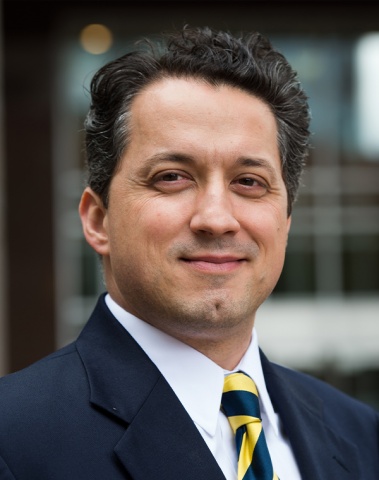Few people realize policy without funding is just conversation.”

Antony DiGiovanni
First Job out of Ford School: PMF - Congressional Fellow at US Senate
After being awarded a Presidential Management Fellowship with the State Department, Antony DiGiovanni (MPP '00) didn’t expect his career trajectory would focus on federal budgeting. When explaining to a prospective employer he was interested in policy–not budgeting– the employer told him “few people realize policy without funding is just conversation.” DiGiovanni is now the deputy budget director for the National Science Foundation (NSF). The Ford School equipped him with the critical thinking and decision-making tools he utilizes daily.
DiGiovanni emphasized how crucial NSF resources have been for scientific and modern technological advancement. “The things that NSF funds are the things of modern life. We fund research about a basic understanding of science,” said DiGiovanni, referencing NSF’s funding for an algorithm that 25 years later became Google. NSF is tasked with funding research in traditional scientific and engineering research, as well as keeping the United States at the leading edge of discovery in areas from astronomy to geology to zoology. What is funded depends on federal policy priorities. “We translate policy into budget and find ways to fund critical research. The controlling factor for policies to land is the dollars,” said DiGiovanni.
NSF is a federally funded foundation, which means DiGiovanni’s boss changes every six years, as the sitting president rotates in office. DiGiovanni explains that the practical politics course he took at the Ford School helped prepare him to stay open-minded and flexible. “The professor assigned the student with an opposite world view organization and made us take the other side’s perspective and argue for that position. It forced people to make arguments outside their world view,” he explained. He uses this approach throughout the presidential transitions. “I have to represent the administration’s policies, regardless of political perspective.”
DiGiovanni knew he was interested in government work after working for an NGO in California. “Companies come and go, but government is permanent,” he said, which is why he looked to the Ford School to pursue his MPP. “The Ford School has a bit of everything - domestic, international, non-profit management, quantitative– and with policy decisions, there are lots of questions to be answered.”
